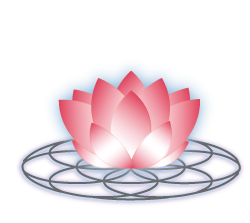Polycystic Ovarian Syndrome (PCOS), is a condition that is often associated with infertility. Women who experience PCOS often have longer menstrual cycles that are greater than 35 days or them to have less than 9 cycles a year. They also experience “hyperandrogenism,” where they exhibit symptoms of high androgens, such having acne anywhere on the body (commonly back and/or face), or hirsutism, where they have facial hair along their jawline. Asian women are less likely to display facial hair due to PCOS. During Ultrasound, a String of Pearls is often seen, caused by 10 or more follicles that were not able to mature along the periphery of the ovaries (Merck Manual). People who experience PCOS often have a difficult time regulating their blood sugars, sometimes leading to later diagnosis of Metabolic Syndrome.
Balance Hormones
This goes without saying. Hormones are how the body communicates what to do between different organs. Your brain sends messages to the pituitary gland, which sends messages to different organs to get things done. Every hormone if your body comes with a feedback loop, where the concentration of certain hormones is regulated. Balancing hormones would allow your body to regulate itself better and allow more regular cycles, and better regulation of insulin, and a decrease of hyperandrogenism symptoms.
One of the easiest recommendations to help with hormonal balance is by losing weight. A 5-10% decrease in body weight can be enough to regulate your menses, blood sugar, and allow you to get pregnant (Jiskoot et al, 2017). This might be all you need to balance your hormones and get pregnant; however, you may want to do more to continue enhancing your chances.
Regular Cycles & Ovulation
One thing that can happen from having irregular cycles or missing your cycle, can be not ovulating for that month. This is also known as anovulation and can be due to a hormonal imbalance between progesterone and estrogen. Women that do not ovulate can experience breast tenderness, fluid retention, PMS symptoms, and painful cramps with clots and heavy flow. These symptoms are also associated with estrogen dominance, which can prevent the body from ovulating and having regular cycles. Which brings us back to hormonal balancing.
As mentioned above, losing 5-10% of body weight can be enough to regulate hormones. However, if you are still not where you want to be, there are certain foods you can eat to help balance hormones. The Cruciferous vegetables contain sulforaphane glucosinolates that can up regulate glutathione, which is the master antioxidant in the body. It helps bind metabolites and is able to stop reactive oxygen species from attacking the cells (Fahey J, 1999). As a food, you would have to eat a ridiculous amount of these vegetables to experience the benefits.
If you have thyroid concerns, specifically hypothyroidism, make sure that you are cooking these vegetables because they are goitrogenic. This means that they can interrupt the production of thyroid hormones (Paśko et al, 2018).
Playing with hormones without proper knowledge can be a challenge and be potentially dangerous, depending on how you choose to go about it. So before you start working on your hormones, make sure that you find a practitioner that will be able to guild you properly.
~ Dr. Charmagne


